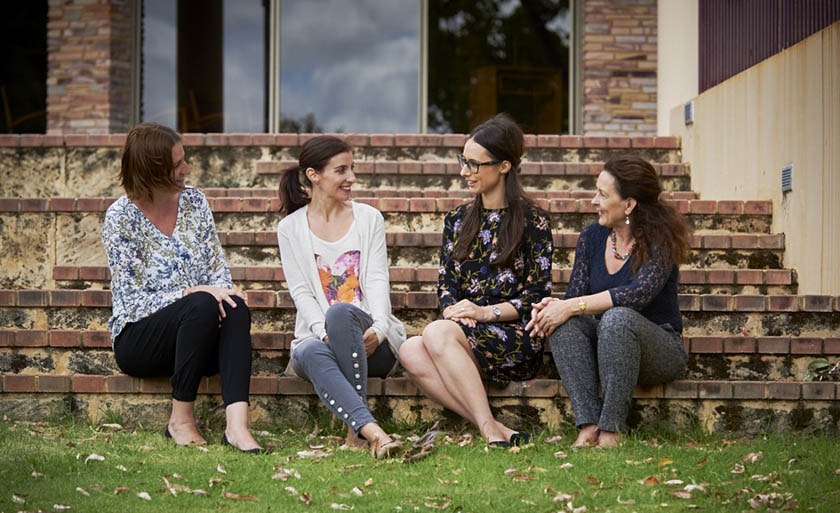“Developing a balanced lifestyle, will help keep you calm, grounded and motivated to deal with anything life throws at you,” Cindy says.
Maintaining this balance can be broken down into eight easy steps.
1. Make time to socialise
“Share time with people who bring you pleasure and support, this could be family or friends,”Cindy says.
“It can be easy to say no to socialising with friends due to work, other commitments or because you don’t feel up to it, but it is important to maintain these relationships and take time out to enjoy yourself with people you love and care about.”
2. Commit to hobbies or interests
“Always take the time to pursue your hobbies or interests, whether it is playing sport, going to the beach, reading, hiking or going to movies,” Cindy says.
“These act as stress relievers, round out your life, and give you the opportunity to refresh your body and mind.”
3. Exercise
“Exercise doesn’t have to solely be about losing weight (although that can be an added benefit). Exercise releases your body’s endorphins which are natural pain and stress fighters,” Cindy says.
“I recommend exercising three times a week, and importantly, doing an exercise you enjoy so you continue it for years to come.
"Committing to a team sport can help motivate you when you are finding it difficult to make time.
"Exercise doesn’t have to be strenuous, a quiet walk around your neighbourhood can be enough.”
4. Stimulate your mind
“Read the paper, take up a night class, listen to the news, complete a crossword, or engage in discussions with family or friends about the latest happenings,”Cindy says.
“This is a great way of helping you feel connected to your community and what is going on around you and in the broader environment. It can also be an opportunity to challenge your assumptions and discover different perspectives.”
5. Eat well and stay hydrated
“Ensure you eat three balanced meals a day and a couple of healthy snacks in between to ensure you have enough fuel for everyday activities,”Cindy says.
“You should also try to have a mixture of fresh fruit and vegetables in your diet to ensure your body is getting the nutrients it needs.
"Drinking plenty of water will maintain hydration which is vital for good health particularly in the hotter months."
6. Relax and take regular holidays
“This is probably one of my most important tips. It can be surprising how much stress we store in our minds and bodies,"Cindy says.
"Relaxing, especially through meditation and yoga, can help reduce your stress and quiet your mind so you feel more refreshed and able to tackle problems head on. If yoga is not for you, try sitting out in the garden listening to some gentle music or read a magazine without being distracted by others.
"Also, make sure you take regular breaks from work. Enjoying a long weekend away from the routine of day-to-day life can do wonders for your emotional wellbeing."
7. Work
“This may sound like a bit of an odd one because work is often a source of stress for people,” Cindy says.
“However work, or at least occupation, is also a way to connect with your community, meet new people, distract you from other life challenges, challenge your mind, give you a sense of purpose, and explore your potential. Although it is important to make time to balance your work with other activities.”
8. Sleep
“Getting a good night’s rest gives your body a chance to reset, it also keeps you fresh to tackle the following days challenges,”Cindy says.
"It is important to develop regular sleep habits.
“Sleep reduces your stress levels and anxiety, which is really important to maintaining good mental health. Aim for about seven hours a night.
"Some helpful tips to help you develop healthy sleep habits include reducing your exposure to screens for an hour before going to bed, listening to sleep-aids apps on your phone or taking a warm shower before bed."








